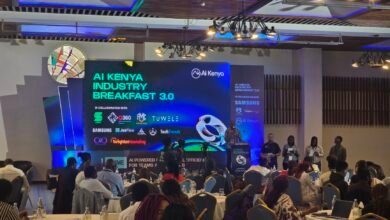
In July 2025, Google introduced Opal, its AI-driven “vibe-coding” platform that lets anyone build functional web apps simply by describing their needs in plain language. After early U.S. successes, Google has recently announced Opal’s rollout to 15 new markets – spanning India, Japan, Brazil, Singapore, and beyond. Yet conspicuously absent are Kenya and the rest of Africa. As these AI tools promise to revolutionize how we work, create, and do business, it’s time to ask: why does Africa always come last?
Democratizing Development – For Everyone Except Africa
Opal’s promise is irresistible. Picture a small business owner crafting a booking system, or a teacher designing a custom quiz app, all without writing a single line of code. With Google Workspace integration, teams can connect Sheets, Drive, and Gmail to their creations in minutes. But while innovators in Asia and Latin America dive in, African developers watch from the sidelines, awaiting an unspecified launch date.
This exclusion echoes a familiar refrain. OpenAI’s Sora video-generation app debuted in the U.S. and Canada but remains unavailable in Kenya and across Africa, even as local creators yearn for accessible tools to produce AI-powered content. Meanwhile, Apple continues to limit Apple TV+ subscriptions and Apple Watch ECG features based on country, blocking streaming access in Kenya and disabling life-saving heart-monitoring capabilities across much of Africa.
Geographic Restrictions: Digital Colonialism in Disguise
These geoblocks aren’t neutral technical hurdles – they perpetuate a digital colonialism that restricts African innovation. While companies cite regulatory complexity or infrastructure gaps, the reality is that many African markets already support sophisticated digital ecosystems. Kenya’s mobile money revolution demonstrates that connectivity and digital services can thrive even amid traditional development challenges.
Yet Africa’s youthful, tech-savvy population – more than 60% under age 25 – still faces barriers to tools enjoyed elsewhere. Denying access to AI platforms like Opal and Sora means local entrepreneurs lose precious time and competitive edge. As AI becomes integral to fields as diverse as finance, healthcare, and entertainment, early adopters gain exponential advantages in productivity and creativity.
Infrastructure Excuses Don’t Hold Up
Tech giants often blame bandwidth and latency issues for excluding African markets. But Africa’s mobile-first internet usage and growing 4G/5G networks support data-intensive apps like TikTok and Netflix. Moreover, cloud-based AI tools mitigate local computing demands, operating seamlessly over existing networks. If these platforms can handle high-resolution video streaming, they can support no-code app builders and AI video generation just as well.
Market Potential Ignored
Africa’s digital economy is forecast to exceed $180 billion by 2025, yet the continent contributes less than 1% of global AI research. By sidelining African developers from early access to AI tools, companies forgo enormous market opportunities and the chance to tap fresh perspectives on AI applications. Local innovators are already solving pressing challenges – from fintech solutions that extend financial inclusion to healthtech apps tailored to regional needs. Denying them tools like Opal and Sora stifles homegrown innovation.
Culturally Relevant AI Deserves African Input
AI models trained predominantly on Western data often falter when handling African languages, accents, and cultural contexts. When Africans can’t use these AI platforms, they can’t train and fine-tune models on local datasets. This perpetuates AI solutions that overlook, misinterpret, or exclude African nuances, limiting technology’s ability to serve the continent’s diverse populations effectively.
Regulatory Complexity or Strategic Choice?
Regulatory justifications frequently mask strategic market prioritization. Many African countries now boast robust data-protection laws and clear technology-deployment frameworks. Kenya’s progressive data-privacy regulations and Nigeria’s National Digital Economy Policy both provide solid grounds for AI expansion. Yet companies routinely navigate similarly complex regulations in Asia and Latin America, suggesting that delayed African rollouts are business decisions rather than insurmountable obstacles.
Innovation Partners, Not Afterthoughts
True global innovation demands treating Africa not as a latecomer but as a core partner. Including African markets in initial AI tool rollouts would foster richer feedback loops, improve model robustness across languages and contexts, and accelerate development of solutions that work worldwide. It would also harness Africa’s vast pool of creative talent, injecting new ideas into the global AI ecosystem.
A Call for Equitable Access
The pattern is clear: every new AI tool launch follows the same playbook – exclude Africa until later phases. This approach undermines equitable innovation and cements existing digital divides. Technology companies must recognize that African developers, entrepreneurs, and creators are not just consumers but contributors whose insights can enhance AI for everyone.
Google’s Opal, OpenAI’s Sora, and Apple’s health and entertainment offerings all illustrate the same missed opportunity. By opening these platforms in Africa from day one, companies would validate their commitment to global innovation and digital equity. Ultimately, the question isn’t whether Africa can handle advanced AI—it’s whether tech giants are prepared to embrace the transformative potential that African innovators bring to the table. Only then can AI truly live up to its promise as a tool for universal empowerment.






